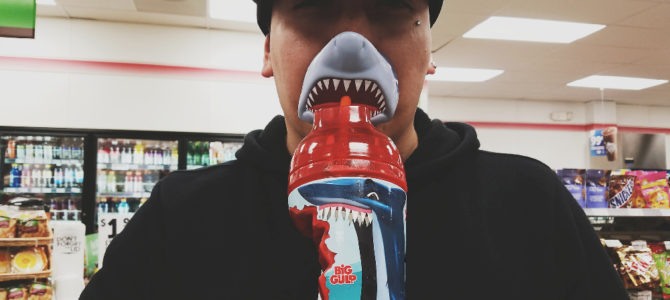
The tax man cometh for purveyors of sugary drinks—and for consumers forced to absorb a slew of new, not-so-sweet excise taxes. In a government-spearheaded effort to promote healthier lifestyles and fill public coffers, more U.S. cities are assessing taxes on sugar-sweetened beverages (SSBs). State lawmakers are considering imposing similar taxes.
Cities typically tax retailers 1 to 2 cents per ounce of SSB sold. In most cases, retailers pass this cost on to shoppers. The idea is to tax citizens unto greater health by dissuading them, one cent at a time, from buying soda and other sweetened drinks.
Data on the effectiveness of such taxes is just now surfacing, and much of it lends itself to being spun however ideologues want. But market principles reign. Sugary drink taxes drive some consumers to purchase substitute products that pose equal or greater health risks. The same taxes drive other consumers to buy equal or greater quantities of sweetened beverages outside city limits.
The New Sin Tax Targets Sugar
Probably to no one’s surprise, the first penny-per-ounce excise tax on soda and other SSBs originated in Berkeley, California—home to the eponymous university, infamous for its imperialistic brow-beating and violent riots, the preferred form of expression of masked protestors who lit objects on fire and caused $100,000 worth of damage to protest a college political group’s invitation of provocateur Milo Yiannopolous earlier this year.
Philadelphia followed Berkeley’s lead in January 2017 by implementing a 1.5-cent tax per ounce of not only drinks with added sugar, but beverages artificially sweetened with sugar substitutes. The tax increased the cost of a two-liter bottle of soda by $1.01 and a 24-pack of soda by $4.32, The Heartland Institute reported in May.
Adopting government-imposed diets is catching on. The city of Albany, California implemented a penny-per-ounce SSB tax in April. The first collection was due in May. Oakland’s penny-per-ounce tax on SSBs will take effect on July 1. San Francisco’s will hit in 2018. Not to be outdone, Boulder, Colorado will implement a tax of 2 cents per ounce of SSB on July 1. Voters approved the tax at the ballot box by a margin of eight points in November 2016.
Effective at Fattening Governments and Citizens
Just how effective are these taxes? That depends on what people hope to achieve by imposing them. The commonest purported goal is to deter people from buying drinks supposedly likely to make them fat or cause health problems.
How provincial. In the immortal words of Chicago Mayor Rahm “The Godfather” Emanuel and former chief of staff to President Barack Obama, “You never want to let a serious crisis go to waste. And what I mean by that [is] it’s an opportunity to do things that you think you could not do before.”
Just ask greater Chicago. While taxing citizens in order to slim them down, government coffers are fattening up. Commissioners of Cook County, Illinois (home to Chicago) hope to raise $224 million annually—an average of $43 per each of 5.2 million residents—by raking off 1 cent per ounce of SSBs starting on July 1, 2017, the Chicago Tribune reported after officials voted 9–8 to impose the tax on November 10, 2016. Chicago already assesses “a 3 percent tax on retail sales of soft drinks in cans or bottles and a 9 percent tax on the wholesale price of fountain drink syrup,” the Tribune reports.
Whether increases in tax revenue benefit citizens is in the eye of the beholder. Apparently, so is whether SSB taxes are successfully changing consumer behavior. An April 2017 study conducted one year after Berkeley implemented its tax concludes the findings “suggest promise for this policy.” After all, SSB prices rose, SSB sales declined, and consumers bought healthier substitutes, the researchers wrote in the journal PLOS Medicine.
Yet the tax is a colossal failure when measured by other findings of the same study. The average consumer’s daily caloric intake fell by 6 calories per day for taxed beverages—but increased by 31 calories per day for untaxed beverages, the American Beverage Association noted and Politico reported on April 19. In other words, Berkeley’s tax drove consumers to drink. But instead of drinking sugary beverages, shoppers slurped up milk and other dairy-based drinks in greater caloric quantities than they gave up by kicking SSBs.
The same study found sugary beverage sales increased by 7 percent just outside Berkeley’s city limits, as Dr. Chuck Dinerstein, a senior medical fellow at the American Council on Science and Health, has noted and Time reports. The evidence suggests the only lifestyle change Berkeley’s tax on sugary drinks has wrought is to persuade sweet-toothed consumers to drive farther to purchase taxed beverages and to increase their net calorie intake.
Yes, the tax man cometh. He may not tax you to death this time. But he surely won’t tax you to health.









